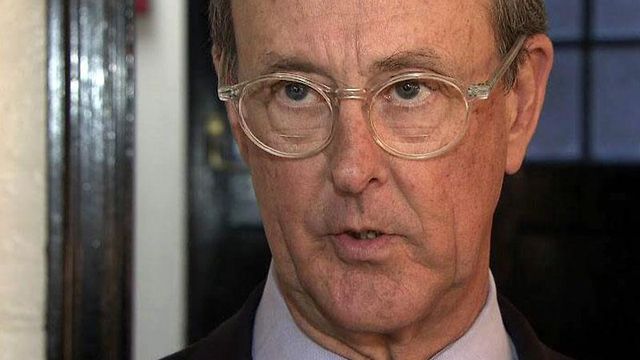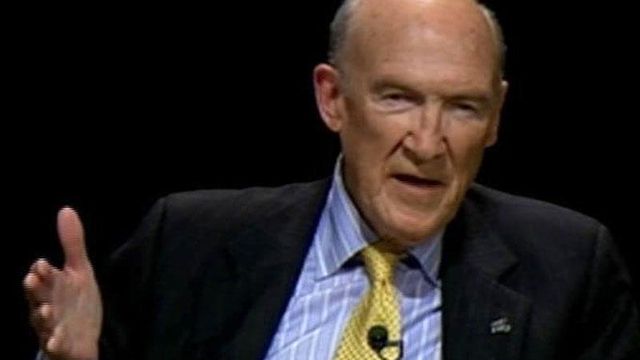US debt panel heads fear partisan politics will stall solutions
The heads of a bipartisan commission that were appointed by the president to study federal debt said Wednesday that thick partisan politics in Washington are preventing good solutions to the nation's debt crisis.
Posted — UpdatedDuke University hosted former University of North Carolina system president Erskine Bowles and former Wyoming Sen. Alan Simpson for a discussion on what to do about the federal budget and restoring the nation's confidence.
President Barack Obama created the bipartisan budget commission in February 2010 to identify how to improve the fiscal situation by 2015. The plan they proposed, with its combination of tax increases and spending cuts, have stalled in the very divided Congress.
"Money guys liked it, political guys said, 'lay low,'" Simpson said.
Simpson and Bowles have taken to traveling the nation, trying to drum up support for their plan in the hopes it can be turned into legislation.
"We are making great progress and have a huge bipartisan coalition in the House and Senate," Bowles said.
They said the nation's debt has surpassed $15 trillion and that the budget crisis is caused by four things: healthcare, defense, the tax code and interest charged on debt.
If nothing is done, Bowles and Simpson said, the U.S. will owe more than $1 trillion in interest alone by 2020.
"That is a formula for failure," Bowles said.
Audience members at the discussion, which was moderated by Philip Bennett, a Duke public policy professor and managing editor of the PBS show "Frontline," were optimistic.
"When we get hurt enough, we find a way to make things happen," Nelson Pierce said. "I think that will happen this time."
• Credits
Copyright 2024 by WRAL.com and the Associated Press. All rights reserved. This material may not be published, broadcast, rewritten or redistributed.






